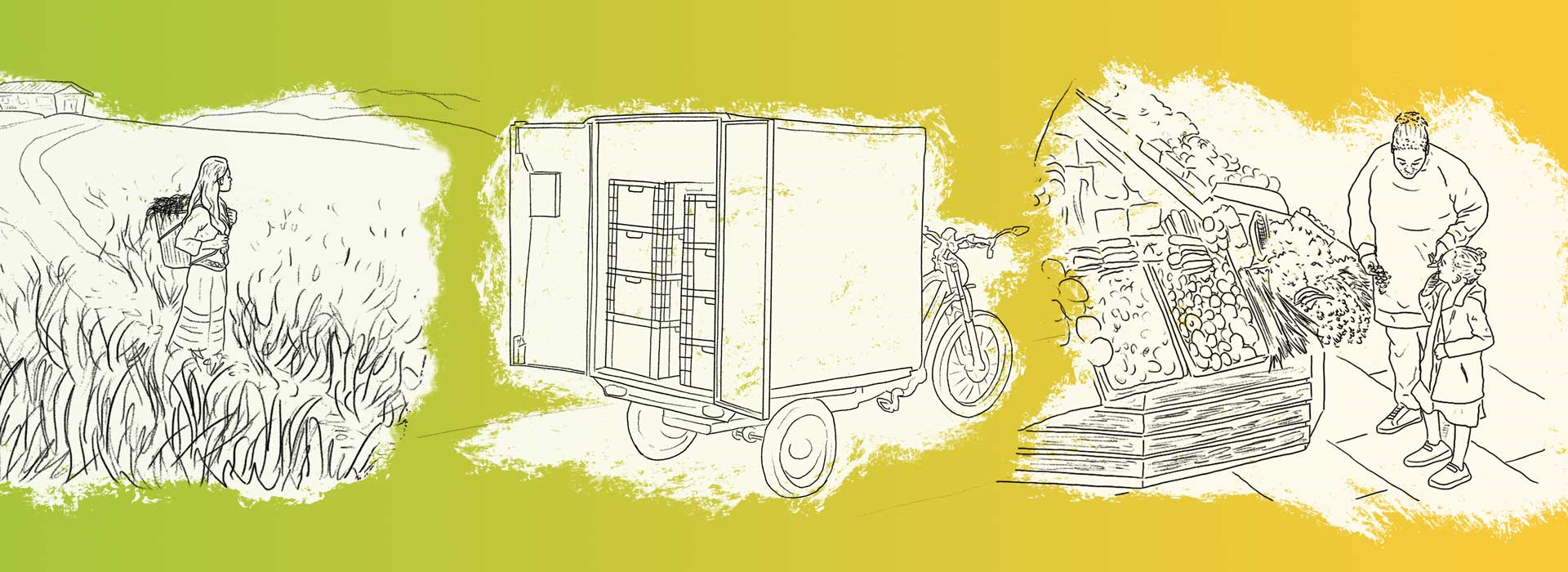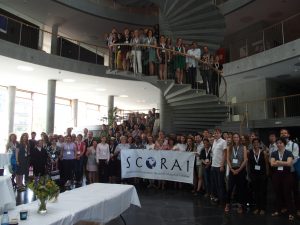

SCORAI has recently won a prestigious Belmont Forum award for a project entitled “Co-creating Sustainable Food Supply Chains” (Co-SFSC). The project involves researchers and practitioners who will work to assess and transform some aspects of sustainability in their local supply chains. The local work will be conducted by five teams across the globe: Germany, Sweden, Taiwan, Thailand and Turkey. The objective is to involve practitioners in the project of science and transformation of local food contexts.
This grant application was led by SCORAI Executive Board Member Dr. Ashley Colby, an environmental sociologist by training and part-time podcaster as a hobby. Ashley is drawing on her expertise as a qualitative researcher to interview participants in this three-year project and to share these with the wider sustainable consumption community. SCORAI steps into the role of a communicator of insights from successful local projects that carry out bottom-up work for sustainability in communities around the world.
We invite the entire SCORAI community to follow along with the project. We will be publishing regular videos, blog posts, and will be sharing insights across all major social media platforms. Our greatest hope is to showcase a kind of “think global, act local” ethos by sharing insights from specific local examples that could potentially be inspiration for other contexts around the world.
About the project:
Co-SFSC is a project that combines both research and transformation. This means that researchers will work with specific practice partners to identify aspects of their local supply chain that could be intentionally made more resilient, and throughout the project will work with them to improve that aspect. Each hub focuses on one aspect of the supply chain, from restaurants buying local and organic in Thailand, to working on advancing a burgeoning “eco-district” of farmer’s markets and local foods in Sweden.
What makes this project unique is that:
1. It has a research focus on sustainable food supply chains, paying specific attention to cooperatives and the roles they might play along the supply chain, and
2. It is transdisciplinary, transformational, and utilizes a community of practice model of project design.
The project is transdisciplinary. This means including practitioners in the research process so that the work not only makes a substantive impact in the real world, but also the practitioners will be an active component of the agenda and direction of the project at all stages, including initial design and development.
The project is transformational, or intentionally developed to make real-world changes during the implementation by realizing pilot experiments locally with the practice partner. This differs from many research projects that can in some ways be extractive – of not only data, but resources and time – from local practitioners. In this way a transdisciplinary, transformational, co-creative project has a social justice component and is also disposed toward action.
One way to combat potential misunderstandings across cultural contexts and foster learning is to use a community of practice model in this research which recognizes that each of us has different specialties and expertise. Throughout the project, all the various participants – from researchers to restaurateurs to farmers to politicians – will reflect on what happens in the hubs, to transfer insights, and principles for sustainable consumption on project level.
Overall, the project – with its emphasis on co-creating, transformation with the specific focus on cooperatives in sustainable food systems – has a chance to provide a model for future research projects looking to not only advance our understanding of sustainability, but to play a role in bringing more sustainable practices into the world.
Our first interview and blog post is with the coordinator of the project Pia Laborgne of the Karlsruhe Institute of Technology (KIT):
“I like very much also to work on here in the region, really concretely changing something to work with practice partners to think of how we, as researchers can contribute to sustainability, sustainability transformation. That’s something I like very much.” – Pia Laborgne
In the coming months Ashley will be sharing detailed video interviews and blog posts highlighting each of the five hubs, their specific local practice partners, and their goals for transformation. Over the next three years, we will be following their journeys to really understand and advance sustainability in local food supply chains.
Please follow along with the project, on the SCORAI website, the project website or across our various social media pages: Instagram, Facebook, Linkedin, Twitter, YouTube, Email. You can also read about our kick-off meeting in Germany here.
YouTube videos
Blog posts
- Project Kick-Off
- Interview with Pia Laborgne
- Interview 2 – Prof. Aylin Topal introduces the Turkish Hub
- Interview 3 – Dr. Rebecka Milestad introduces the Swedish Hub
- Interview 4 – Sarah Meyer-Soylu and Eve Wendeberg introduce the German hub
- Interview 5 – Natapol Thongplew and Kanang Kantamaturapoj introduce the Thailand Hub
- Interview 6 – Ying-Chen Lin introduces the Taiwan Hub
- How does a sustainability assessment benefit practitioners?
- Important Insights at the Sustainability Research and Innovation Congress Helsinki 2024



